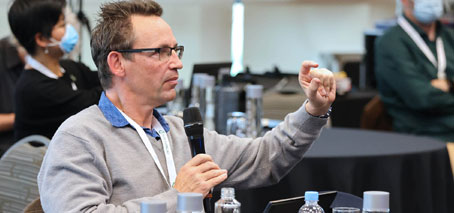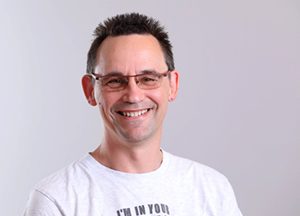Unleashing the combined power of electrons and holes for better quantum computing
Congratulations to FLEET Deputy Director Prof Alex Hamilton, who has been named an Industry Laureate Fellow by the ARC.
Alex and his team at UNSW receive $3.8 million towards ground-breaking silicon-based quantum-computer technology to dramatically speed up computation, enabling Australia to maintain its global lead in quantum technologies.
The Australian Research Council eight Industry Laureate Fellowships ($27 million) bring industry and researchers together to translate innovative ideas into outcomes that benefit industry partners, end-users, and the Australian economy.
“These outstanding laureate researchers bring experience and leadership to industry challenges,” said ARC CEO Judi Zielke.
Working with Sydney-based, world-leading quantum company Diraq, the team will integrate electrons and holes, semiconducting and superconducting functionalities, into a single platform to solve key issues in the race to scale up quantum computing from small-scale proof-of-concept prototypes to industrially-relevant functions.
“The project will integrate semiconducting electrons and holes into a single platform, link with industrial partners, and reinforce Australia’s leadership position in quantum computing technologies,” Professor Hamilton said.
“Although half of all the billion transistors in your mobile phone use positively-charged holes, instead of negatively-charged electrons, to operate, most research has concentrated on the quantum properties of electrons. Our research team has shown that holes have many advantages for quantum spin properties, and it’s exciting to see that this is of great interest to industry.”
Large-scale quantum computers promise unprecedented power with applications ranging from searching large databases for images and video, to optimising traffic routing, cryptography, and simulating advanced new materials and drug designs.


